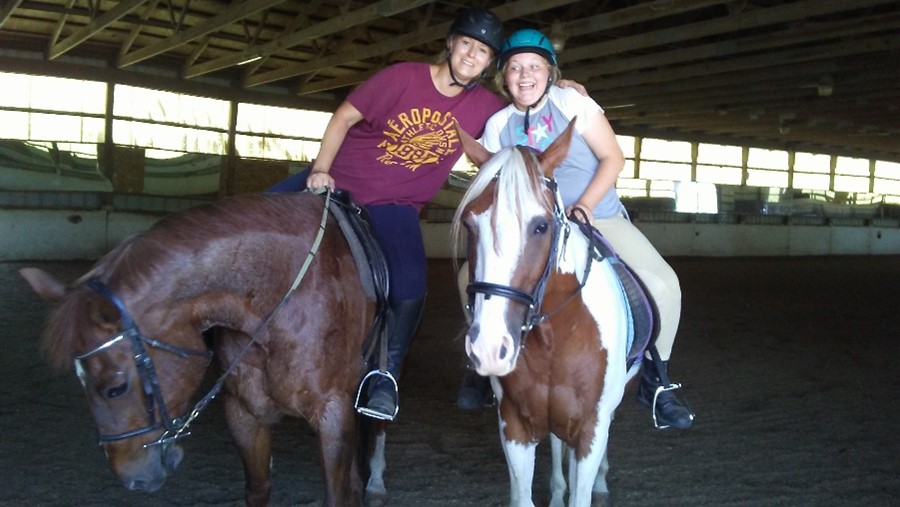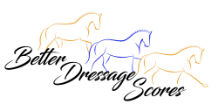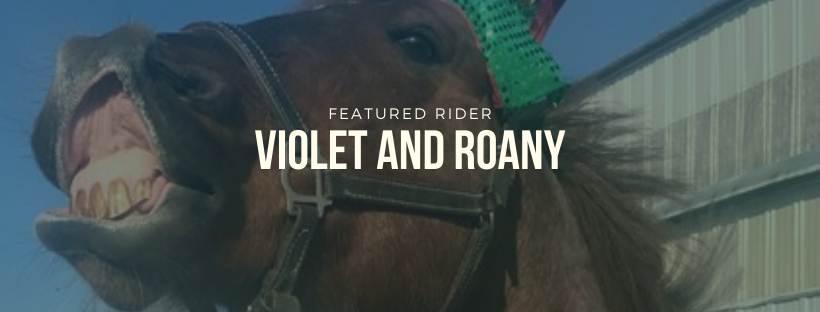1. How did you find out about BDS?
I found BDS on WDAA’s website search for virtual shows for WDAMI (WDAA Michigan Affiliate). It’s been a great experience and the BDS team were wonderful and patient in guiding me through the process.
2. Why is online horse showing so important to you?
My original goal this season was to introduce my horse to live shows. It has been a long time since I have shown and I didn’t want to delay my restart another year, as I’m not getting any younger! Of course, with covid-19 becoming an issue, plans changed, and virtual showing is now an important part of my new goal: aiming for 2020 virtual year end awards. Crossing my fingers!
3. When and why did you start riding?
My riding history does not begin at a young and tender age. I was 18 years old when I found my first jumper stable in a phonebook (for our smartphone generation: the phone book was a large book that contained all the contacts for everyone in your community). I told my mom was venturing out of the city for a country life with horses and I never looked back.
4. Do you own your own horse or do you use school horses? What is he/she like and how did you get him/her?
I am the proud owner of “Haidas Genuine Doc” aka “Roany,” or “Roany Pony” or “Whiskey Throttle” as my son wished to call him after an experience with his “light throttle,” and lack of brakes. I acquired Roany after his previous owner abandoned him. He was off his eye medication, had an active uveitis infection, and no training in any discipline; he mostly just got behind the vertical and avoided any real connection. He was not exactly what I was shopping for, but he needed a home, I needed a horse, and the price was within my budget. I’d never liked a roan horse either, although I know “a good horse is never a bad color.” When I looked into his eyes, however, I could see his fear and worry, and knew deep down I was the person to help him, even if it meant he may not be able to look back into my eyes for very long. It was my mission to show him not to be afraid.
So began a journey on treating uveitis with my veterinarian. I was told that Roany could lose his eye at any time or not. His eyes could serve us for years, or, for just a few weeks. Many years prior, I had searched for a special trainer, someone who would be more than the average screamer. I found an amazing, educated horsewoman named Dorothy Mueller at Ironwood Farm in Leonard, Michigan. Once again, I returned to her, with a lead rope in one hand, and all my hopes in the other. She was willing to work with me on building trust with Roany as he progressed into blindness. It would be quite a task, because even trying to mount was challenging. With careful handling, he began to make strides in his training and was like a big puppy dog. Unfortunately, his uveitis had been progressing too, and I had to confront the dilemma we had been preparing for.
My vet recommended me to an ophthalmologist. My friend and fellow Ironwood student, Rachel, accompanied me to his appointment for moral support. She stood calmly alongside me as the doctor told us Roany’s right eye was painful and not functioning. The left eye had no pain, but a cataract was present and causing some blindness. I was informed that riding Roany was dangerous and that it was risky to do so. It was hard to hear, but I was not going to be heartbroken about this. In my heart, I knew I was still doing the right thing by educating Roany so he could have a home. She gave my hand a squeeze and I remembered how we had re-trained draft horse teams that ran off with wagons to accept their duties quietly, utilizing groundwork and long-lining techniques. I realized I could do the same for Roany.
Uveitis can be caused by infection, injury, or an autoimmune or inflammatory disease. Learning to manage uveitis can help to relieve pain and possibly prevent further damage. UV eye protection should be worn outdoors and there is inexpensive medication that can help. Glaucoma is a secondary complication to uveitis and causes pain by high internal pressure. We decided it was best to remove Roany’s right eye when his supportive medications were no longer effective and his glaucoma had raised the pressure in his eye, causing damage to the structure of his eye and extreme pain. I searched for a surgery center and decided on the type of surgery I was comfortable with: standing enucleation. It’s a newer technique for removing an eye. His surgery was a two day stay, and I often wonder if it was harder on him, or me! His recovery went well, but I was worried and struggled to sleep. Still, we focused on continuing to help him live fear-free. We did a lot of walking in the time that followed his surgery.
Once fully recovered, he was back to work just as before. He continues to blossom into a kind and willing partner. He loves junk food and my children, Gabriella and Skyler, love to sneak him gummy bears. We have taught him fun tricks like smiling on cue and he is beginning to learn to bow. He is even respectful and trusting of my little dog running around his feet. When I ride Roany, my main goals are to ride balanced and to stay consistent with cues since visual cues and body language are not clear options. We utilize verbal cues and touching cues from the ground to help him find his body and ours in space, which will be a lifeline for him once he goes completely blind. Small tricks and commands teach a horse to begin to look for answers; this seeking behavior will also be vital when his vision is gone.
If I could impart any wisdom on those out there who are dealing with an eye issue in their horse, it would be to study groundwork and lessons from others who have managed blind horses. It is a humbling experience to let go of your ego involvement in a horse and just make every effort to make them a solid citizen. Roany wanted so much to be a kind and gentle horse but didn’t know how until he was properly cared for and trained appropriately. Patience, persistence, and consistency go a long way with any horse, but especially one who has special needs. The same is true for children, come to think of it. Remember, there are many in this world who need our help… While Roany came to me as a horse of a different color, I am proud to say today that roan is my favorite color!
5. What are some of your riding goals in the near future?
My short-term goals for Roany are nearly complete. I had wanted to make him a desirable horse that could do a job. Now, he will always have a job skill and the security of finding a good home if something were to happen to myself or my financial situation. God forbid Roany ever have to live with anyone but me, but life can change quickly. My long-term goal is to continue moving forward with Roany. There is no pressure as to how far we can go. I’m not an Olympian, I’m on a budget like most of us, but I push forward each day with no whining or crying about how to get it done. I learned from Roany that we have to stay in the moment and treat each horse as the individual that they are. If there is no magic in your horse training, take a step back, evaluate where the horse is, and make the magic happen yourself! If you are struggling with a blind horse, I hope this story can help you find the light.











